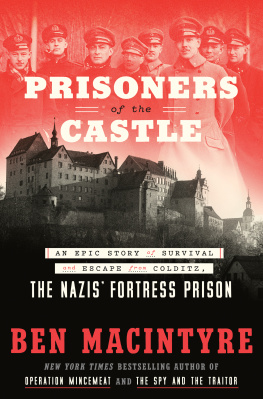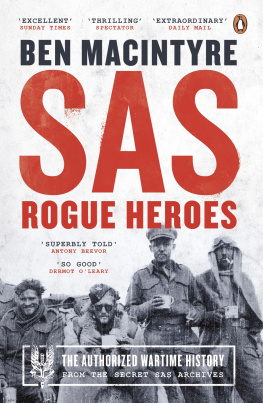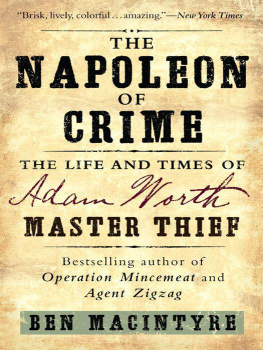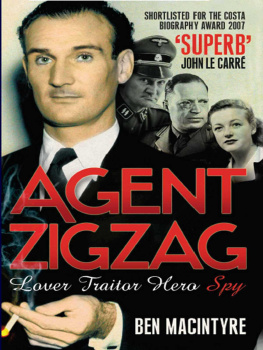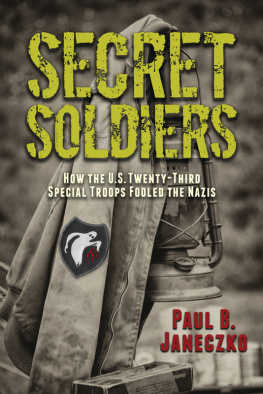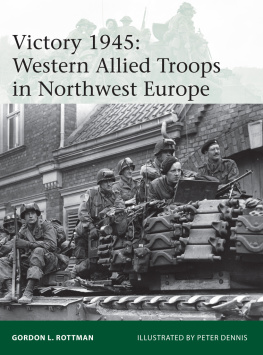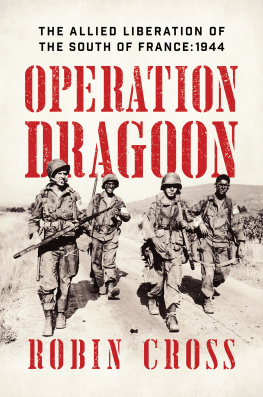Ben Macintyre - Operation Mincemeat: How a Dead Man and a Bizarre Plan Fooled the Nazis and Assured an Allied Victory
Here you can read online Ben Macintyre - Operation Mincemeat: How a Dead Man and a Bizarre Plan Fooled the Nazis and Assured an Allied Victory full text of the book (entire story) in english for free. Download pdf and epub, get meaning, cover and reviews about this ebook. year: 2010, publisher: Crown Publishing Group, genre: Non-fiction. Description of the work, (preface) as well as reviews are available. Best literature library LitArk.com created for fans of good reading and offers a wide selection of genres:
Romance novel
Science fiction
Adventure
Detective
Science
History
Home and family
Prose
Art
Politics
Computer
Non-fiction
Religion
Business
Children
Humor
Choose a favorite category and find really read worthwhile books. Enjoy immersion in the world of imagination, feel the emotions of the characters or learn something new for yourself, make an fascinating discovery.

- Book:Operation Mincemeat: How a Dead Man and a Bizarre Plan Fooled the Nazis and Assured an Allied Victory
- Author:
- Publisher:Crown Publishing Group
- Genre:
- Year:2010
- Rating:4 / 5
- Favourites:Add to favourites
- Your mark:
- 80
- 1
- 2
- 3
- 4
- 5
Operation Mincemeat: How a Dead Man and a Bizarre Plan Fooled the Nazis and Assured an Allied Victory: summary, description and annotation
We offer to read an annotation, description, summary or preface (depends on what the author of the book "Operation Mincemeat: How a Dead Man and a Bizarre Plan Fooled the Nazis and Assured an Allied Victory" wrote himself). If you haven't found the necessary information about the book — write in the comments, we will try to find it.
Operation Mincemeat: How a Dead Man and a Bizarre Plan Fooled the Nazis and Assured an Allied Victory — read online for free the complete book (whole text) full work
Below is the text of the book, divided by pages. System saving the place of the last page read, allows you to conveniently read the book "Operation Mincemeat: How a Dead Man and a Bizarre Plan Fooled the Nazis and Assured an Allied Victory" online for free, without having to search again every time where you left off. Put a bookmark, and you can go to the page where you finished reading at any time.
Font size:
Interval:
Bookmark:
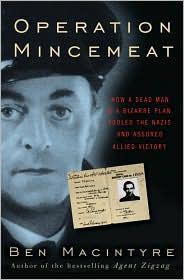
A LSO BY B EN M ACINTYRE
Agent Zigzag:
A True Story of Nazi Espionage, Love, and Betrayal
The Man Who Would Be King
The First American in Afghanistan
The Englishmans Daughter
A True Story of Love and Betrayal in World War One
The Napoleon of Crime:
The Life and Times of Adam Worth, Master Thief
Forgotten Fatherland:
The Search for Elisabeth Nietzsche
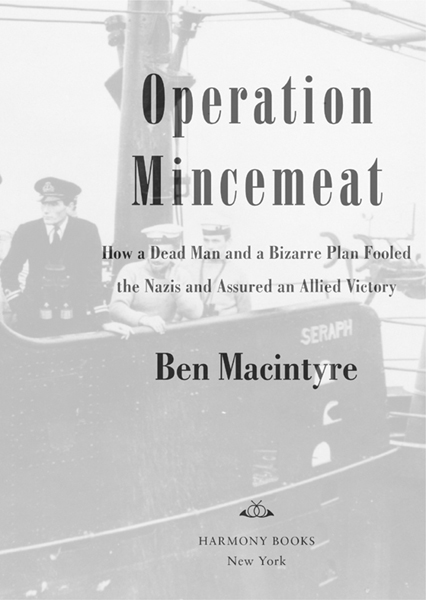
For
Kate & Melita
and
Magnus & Lucie
Who in war will not have his laugh amid the skulls?
W INSTON C HURCHILL , Closing the Ring
CHAPTER ONE:
CHAPTER TWO:
CHAPTER THREE:
CHAPTER FOUR:
CHAPTER FIVE:
CHAPTER SIX:
CHAPTER SEVEN:
CHAPTER EIGHT:
CHAPTER NINE:
CHAPTER TEN:
CHAPTER ELEVEN:
CHAPTER TWELVE:
CHAPTER THIRTEEN:
CHAPTER FOURTEEN:
CHAPTER FIFTEEN:
CHAPTER SIXTEEN:
CHAPTER SEVENTEEN:
CHAPTER EIGHTEEN:
CHAPTER NINETEEN:
CHAPTER TWENTY:
CHAPTER TWENTY-ONE:
CHAPTER TWENTY-TWO:
CHAPTER TWENTY-THREE:
CHAPTER TWENTY-FOUR:
I N THE EARLY HOURS of July 10, 1943, British and North American troops stormed ashore on the coast of Sicily in the first assault against Hitlers Fortress Europe. In hindsight, the invasion of the Italian island was a triumph, a pivotal moment in the war, and a vital stepping-stone on the way to victory in Europe. It was nearly a disaster. The offensivethen the largest amphibious landing ever attemptedhad been months in the planning, and although the fighting was fierce, the casualty rate among the Allies was limited. Of the 160,000 soldiers who took part in the invasion and conquest of Sicily, more than 153,000 were still alive at the end. That so many survived was due, in no small measure, to a man who had died seven months earlier. The success of the Sicilian invasion depended on overwhelming strength, logistics, secrecy, and surprise. But it also relied on a wide web of deception, and one deceit in particular: a spectacular trick dreamed up by a team of spies led by an English lawyer.
I first came across the remarkable Ewen Montagu while researching an earlier book, Agent Zigzag, about the wartime double agent Eddie Chapman. A barrister in civilian life, Montagu was a Naval Intelligence officer who had been one of Chapmans handlers, but he was better known as the author, in 1953, of The Man Who Never Was, an account of the deception plan, code-named Operation Mincemeat, he had masterminded in 1943. In a later book, Beyond Top Secret Ultra, written in 1977, Montagu referred to some memoranda which,top secret material is exactly what intelligence officers are supposed not to do. And if Ewen Montagu had kept them for so many years after the war, where were they now?
Montagu died in 1985. None of the obituaries referred to his papers. I went to see his son, Jeremy Montagu, a distinguished authority on musical instruments at Oxford University. With an unmistakable twinkle, Jeremy led me to an upstairs room in his rambling home in Oxford and pulled a large and dusty wooden trunk from under a bed. Inside were bundles of files from MI5 (the Security Service, responsible for counterespionage), MI6 (the Secret Intelligence Service, SIS, responsible for gathering intelligence outside Britain), and the wartime Naval Intelligence Department (NID), some tied up with string and many stamped TOP SECRET . Jeremy explained that some of his fathers papers had been transferred after his death to the Imperial War Museum, where they had yet to be cataloged, but the rest were just as he had left them in the trunk: letters, memos, photographs, and operational notes relating to the 1943 deception plan, as well as the original, uncensored manuscripts of his books. Here, too, was Ewen Montagus unpublished two-hundred-page autobiography and, perhaps most important, a copy of the official, classified report on Operation Mincemeatthe boldest, strangest, and most successful deception of the war. The personal correspondence between Ewen Montagu and his wife, at least three letters a week throughout the war, was also made available to me by the Montagu family. Without their generous help, this book could not have been written. All quotations are cited in the endnotes, but for clarity, I have standardized spellings, avoided ellipses, and selectively used reported speech as direct speech.
If my discovery of these papers reads like something out of a spy film, that may be no accident: Montagu himself had a rich sense of the dramatic. He must have known they would be found one day.
More than half a century after publication, The Man Who Never Was has lost none of the flavor of wartime intrigue, but it is, and was always intended to be, incomplete. The book was written at the behest of the British government, in order to conceal certain facts; in parts, it is deliberately misleading. Now, with the relaxation of government rules surrounding official secrecy, the recent declassification of files in the National Archives, and the discovery of the contents of Ewen Montagus ancient trunk, the full story of Operation Mincemeat can be told for the first time.
The plan was born in the mind of a novelist and took shape through a most unlikely cast of characters: a brilliant barrister, a family of undertakers, a forensic pathologist, a gold prospector, an inventor, a submarine captain, a transvestite English spymaster, a rally driver, a pretty secretary, a credulous Nazi, and a grumpy admiral who loved fly-fishing.
This deception operationwhich underpinned the invasion of Sicily and helped to win the warwas framed around a man who never was. But the people who invented him, and those who believed in him, and those who owed their lives to him, most certainly were.
This is their story.
Ben Macintyre
London, 2009
The Sardine Spotter
J OS A NTONIO R EY M ARA had no intention of making history when he rowed out into the Atlantic from the coast of Andalusia in southwest Spain on April 30, 1943. He was merely looking for sardines.
Jos was proud of his reputation as the best fish spotter in Punta Umbria. On a clear day, he could pick out the telltale iridescent flash of sardines several fathoms deep. When he saw a shoal, Jos would mark the place with a buoy and then signal to Pepe Cordero and the other fishermen in the larger boat, La Calina, to row over swiftly with the horseshoe net.
But the weather today was bad for fish spotting. The sky was overcast, and an onshore wind ruffled the waters surface. The fishermen of Punta Umbria had set out before dawn, but so far they had caught only anchovies and a few bream. Rowing Ana, his little skiff, in a wide arc, Jos scanned the water again, the rising sun warming his back. On the shore, he could see the little cluster of fishing huts beneath the dunes on Playa del Portil, his home. Beyond that, past the estuary where the rivers Odiel and Tinto flowed into the sea, lay the port of Huelva.
The war, now in its fourth year, had hardly touched this part of Spain. Sometimes Jos would come across strange flotsam in the waterfragments of charred wood, pools of oil, and other debris that told of battles somewhere out at sea. Earlier that morning, he had heard gunfire in the distance, and a loud explosion. Pepe said that the war was ruining the fishing business, as no one had any money, and he might have to sell
Font size:
Interval:
Bookmark:
Similar books «Operation Mincemeat: How a Dead Man and a Bizarre Plan Fooled the Nazis and Assured an Allied Victory»
Look at similar books to Operation Mincemeat: How a Dead Man and a Bizarre Plan Fooled the Nazis and Assured an Allied Victory. We have selected literature similar in name and meaning in the hope of providing readers with more options to find new, interesting, not yet read works.
Discussion, reviews of the book Operation Mincemeat: How a Dead Man and a Bizarre Plan Fooled the Nazis and Assured an Allied Victory and just readers' own opinions. Leave your comments, write what you think about the work, its meaning or the main characters. Specify what exactly you liked and what you didn't like, and why you think so.


